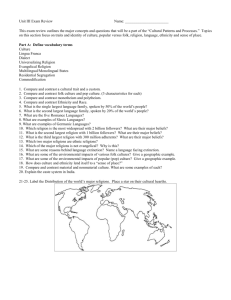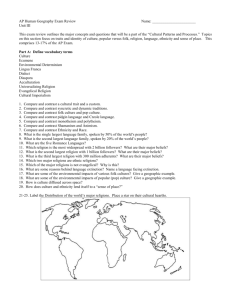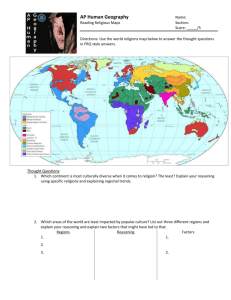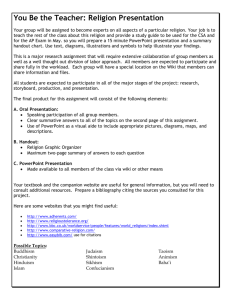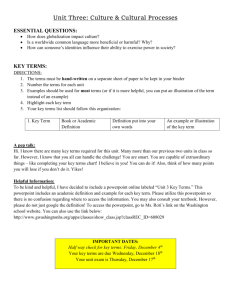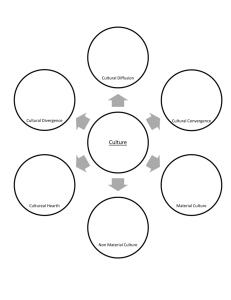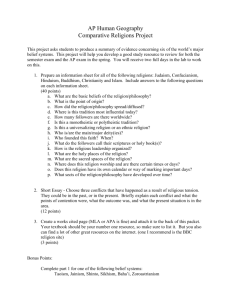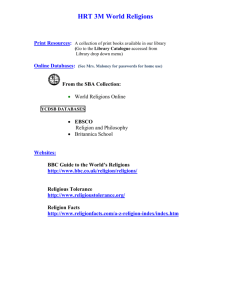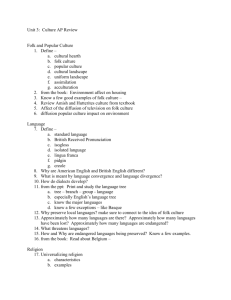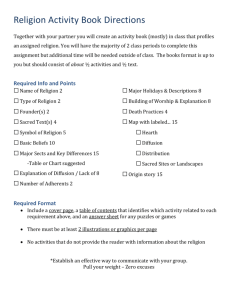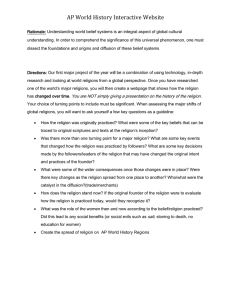Culture Review Packet
advertisement
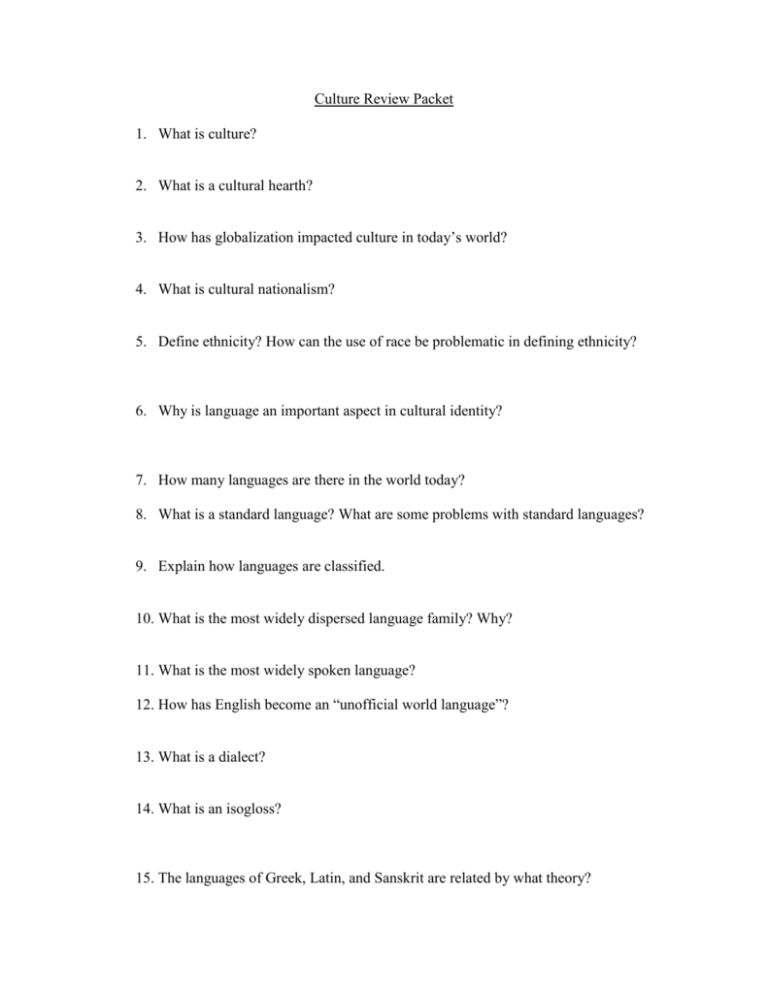
Culture Review Packet 1. What is culture? 2. What is a cultural hearth? 3. How has globalization impacted culture in today’s world? 4. What is cultural nationalism? 5. Define ethnicity? How can the use of race be problematic in defining ethnicity? 6. Why is language an important aspect in cultural identity? 7. How many languages are there in the world today? 8. What is a standard language? What are some problems with standard languages? 9. Explain how languages are classified. 10. What is the most widely dispersed language family? Why? 11. What is the most widely spoken language? 12. How has English become an “unofficial world language”? 13. What is a dialect? 14. What is an isogloss? 15. The languages of Greek, Latin, and Sanskrit are related by what theory? 16. Who created the language tree? 17. Define the three processes of language change: a. Language divergence b. Language convergence c. Language replacement 18. What are the critical influences on the diffusion of individual languages? 19. What did Renfrew suggest in the agricultural theory of language diffusion? 20. What is an official language? Why does the US not have one? 21. Why have some countries around the world made a foreign language their official language? 22. What is a multilingual state? How can this be positive? Negative? 23. How can colonization be a factor in a state’s language? 24. What is a lingua franca? Give an example. 25. What is creolization? 26. What is toponomy? What can it tell you about a place? 27. What are the different classifications in the study of toponomy? 28. What is the world’s most widely dispersed religion? How many followers? 29. What is a global/universal religion? What are the major examples? 30. What are the second and third largest religions? How many followers? Where located? 31. What are cultural and regional religions? Examples? 32. What is secularism? 33. Describe the important aspects of the following religions(hearth, founder, distribution areas, divisions and key beliefs): a. Hinduism b. Buddhism c. Confucianism d. Taoism e. Judaism f. Christianity g. Islam 34. What are interfaith boundaries? How can these cause problems? 35. What is religious fundamentalism? extremism? 36. How have these ideas brought strife into certain areas? 37. Give three examples with detail of present issues along religious boundaries.
